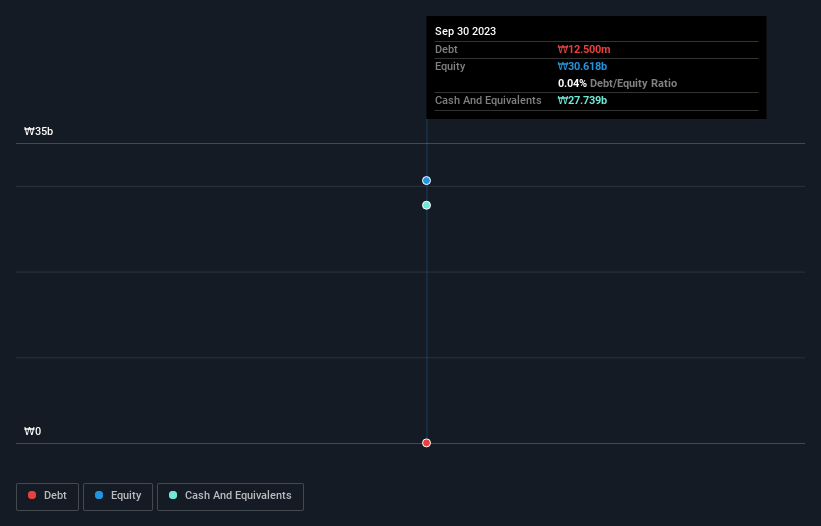- South Korea
- /
- Biotech
- /
- KOSDAQ:A388870
We Think Pharos iBio (KOSDAQ:388870) Can Easily Afford To Drive Business Growth

There's no doubt that money can be made by owning shares of unprofitable businesses. For example, although software-as-a-service business Salesforce.com lost money for years while it grew recurring revenue, if you held shares since 2005, you'd have done very well indeed. But the harsh reality is that very many loss making companies burn through all their cash and go bankrupt.
Given this risk, we thought we'd take a look at whether Pharos iBio (KOSDAQ:388870) shareholders should be worried about its cash burn. In this article, we define cash burn as its annual (negative) free cash flow, which is the amount of money a company spends each year to fund its growth. The first step is to compare its cash burn with its cash reserves, to give us its 'cash runway'.
Check out our latest analysis for Pharos iBio
When Might Pharos iBio Run Out Of Money?
A company's cash runway is the amount of time it would take to burn through its cash reserves at its current cash burn rate. As at September 2023, Pharos iBio had cash of ₩28b and such minimal debt that we can ignore it for the purposes of this analysis. Importantly, its cash burn was ₩9.8b over the trailing twelve months. So it had a cash runway of about 2.8 years from September 2023. Arguably, that's a prudent and sensible length of runway to have. Depicted below, you can see how its cash holdings have changed over time.

How Easily Can Pharos iBio Raise Cash?
Generally speaking, a listed business can raise new cash through issuing shares or taking on debt. One of the main advantages held by publicly listed companies is that they can sell shares to investors to raise cash and fund growth. By comparing a company's annual cash burn to its total market capitalisation, we can estimate roughly how many shares it would have to issue in order to run the company for another year (at the same burn rate).
Pharos iBio has a market capitalisation of ₩205b and burnt through ₩9.8b last year, which is 4.8% of the company's market value. Given that is a rather small percentage, it would probably be really easy for the company to fund another year's growth by issuing some new shares to investors, or even by taking out a loan.
Is Pharos iBio's Cash Burn A Worry?
Because Pharos iBio is an early stage company, we don't have a great deal of data on which to form an opinion of its cash burn. We would undoubtedly be more comfortable if it had reported some operating revenue. However, it is fair to say that its cash runway gave us comfort. Overall, we think its cash burn seems perfectly reasonable, and we are not concerned by it. On another note, we conducted an in-depth investigation of the company, and identified 3 warning signs for Pharos iBio (1 doesn't sit too well with us!) that you should be aware of before investing here.
Of course, you might find a fantastic investment by looking elsewhere. So take a peek at this free list of companies insiders are buying, and this list of stocks growth stocks (according to analyst forecasts)
New: Manage All Your Stock Portfolios in One Place
We've created the ultimate portfolio companion for stock investors, and it's free.
• Connect an unlimited number of Portfolios and see your total in one currency
• Be alerted to new Warning Signs or Risks via email or mobile
• Track the Fair Value of your stocks
Have feedback on this article? Concerned about the content? Get in touch with us directly. Alternatively, email editorial-team (at) simplywallst.com.
This article by Simply Wall St is general in nature. We provide commentary based on historical data and analyst forecasts only using an unbiased methodology and our articles are not intended to be financial advice. It does not constitute a recommendation to buy or sell any stock, and does not take account of your objectives, or your financial situation. We aim to bring you long-term focused analysis driven by fundamental data. Note that our analysis may not factor in the latest price-sensitive company announcements or qualitative material. Simply Wall St has no position in any stocks mentioned.
About KOSDAQ:A388870
Pharos iBio
Develops treatments for rare and refractory diseases using AI based drug development platform in South Korea.
Flawless balance sheet low.
Market Insights
Community Narratives



